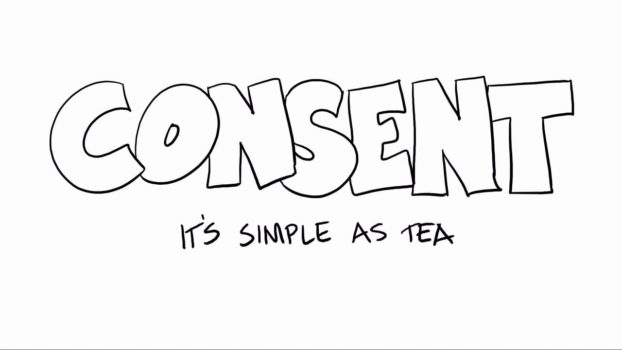Consent
What is Consent?
Consent means agreeing or giving permission to engage in a specific behavior/activity. Consent must be: an active process, a choice, and based in equal power. Consent should be curious, interested, or enthusiastic.
What is Affirmative Consent?
- Consent is a mutual & conscious decision
- Consent can be revoked at any time during sexual activity by any person engaged in the activity
- Consent is required with each escalation and engagement of sexual activity (ie: just because someone consented to kissing or touching does not mean they have consented to sex)
- They are unconscious or asleep
- They are incapacitated due to the influence of alcohol or other drugs
What Does Consent Look, Sound & Feel Like?
Consent may be given through words, actions, and gestures. Verbal and NON-VERBAL modes of communication, including fine nuances such as tone of voice, facial expression, and body language are important to pay attention to. When in doubt, communicate – never assume what someone wants or doesn’t want in the moment. And remember, consent is not like a contract – it involves ongoing communication and collaboration.
Examples of Statements that say “NO”:
- “I’m confused”
- “I’m not sure”
- “I guess if you want to…”
- “Let’s slow down”
- “I don’t want to get pregnant”
- “Maybe”
Examples of Actions that say “NO”
- Looking down
- Moving away
- Cringing
- Pushing away
- Looking upset
- Avoiding being alone
- Not moving/responding/reciprocating
If you’re unsure about an experience you had, we’re here to help you process it.



